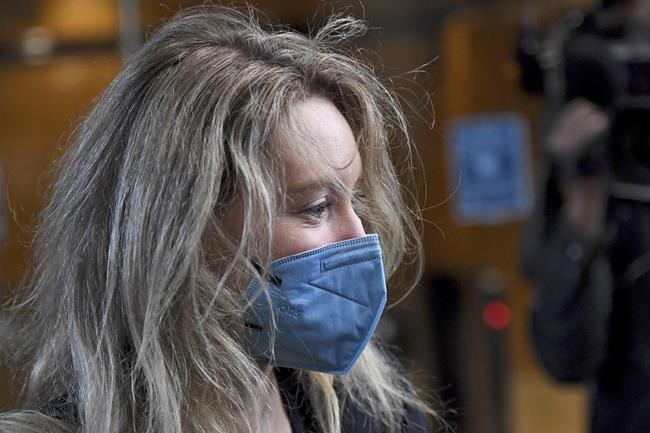Jury selection in the fraud trial of Theranos founder Elizabeth Holmes began Tuesday, casting a spotlight on the fallen Silicon Valley star now facing felony charges alleging she duped elite financial backers, customers and patients into believing that her startup was about to revolutionize medicine.
But the Theranos technology, which promised to run hundreds of medical tests using a single drop of blood, never lived up to expectations, and may never have worked at all.
Once a jury is seated, the trial will begin in San Jose, California, with opening arguments scheduled early next week. The trial will revolve around the rise and fall of Theranos, a startup that Holmes launched after dropping out of Stanford University in 2003.
At one point, it looked like Holmes might realize her lofty ambitions of becoming the next Steve Jobs, the Apple co-founder she embraced as a role model. Not that long ago, business magazines hailed the similarities, featuring Holmes in cover stories about her vision and her estimated fortune $4.5 billion based on her stake in Theranos.
But Theranos — a name derived from the words “therapy" and “diagnosis" — quickly lost steam after revelations that its supposedly breakthrough blood-testing machine, called “Edison," didn't work as Holmes had described and produced dangerously inaccurate results in tests run for actual patients.
Holmes now faces the prospect of being remembered more like Bernie Madoff, the once-revered New York financier whose name became synonymous with fraud after he pled guilty to bilking billions of dollars through an illegal Ponzi scheme. If convicted, Holmes, now 37, could be sentenced to as much as 20 years in prison.
Holmes, who was in court Tuesday, has maintained her innocence since the U.S. government charged her in 2018. Her trial was delayed by the pandemic and then a pregnancy that culminated in the recent birth of a son. Some legal observers believe that could make her a more sympathetic figure before the jury.
Jury selection is expected to take several days. Holmes' saga has received wide attention thanks to a book by a Wall Street Journal investigative reporter whose newspaper stories led to her company's downfall and an HBO documentary called “The Inventor." She is also about to become the subject of a TV miniseries called “The Dropout," starring Amanda Seyfried as Holmes.
More than 200 people were summoned for the jury pool in an effort to seat an impartial panel.
Over the course of the next three months, the trial is expected to provide moments of high drama, featuring a cast of billionaire Theranos investors and influential figures that sat on the company's board.
Investors who contributed much of the roughly $900 million that Theranos raised include media magnate Rupert Murdoch, Walmart's Walton family, the family of former U.S. Education Secretary Becky DeVos and Mexican business mogul Carlos Slim. Theranos' well=connected board included former U.S. Secretary of State Henry Kissinger, former U.S. Defense Secretary Gen. James Mattis, former U.S. Secretary of State and former U.S. Treasury Secretary George Shultz (now deceased) and former Wells Fargo Bank CEO Richard Kovacevich.
Holmes also may take the witness stand to defend herself, based on court documents filed leading up to the trial. If she does, her lawyers have indicated in recently unsealed filings that she will testify that some of her statements and actions while running Theranos were the result of “intimate partner abuse" inflicted by the company's chief operating officer and her secret lover, Ramesh “Sunny" Balwani, who is facing multiple fraud charges in a separate trial.
Balwani's attorney has denied Holmes' allegations.
Michael Liedtke, The Associated Press

